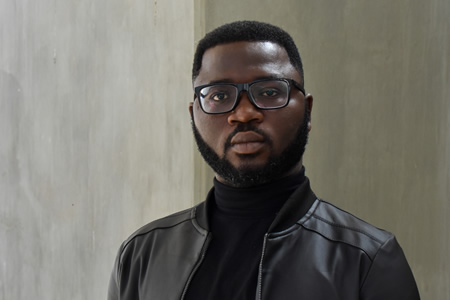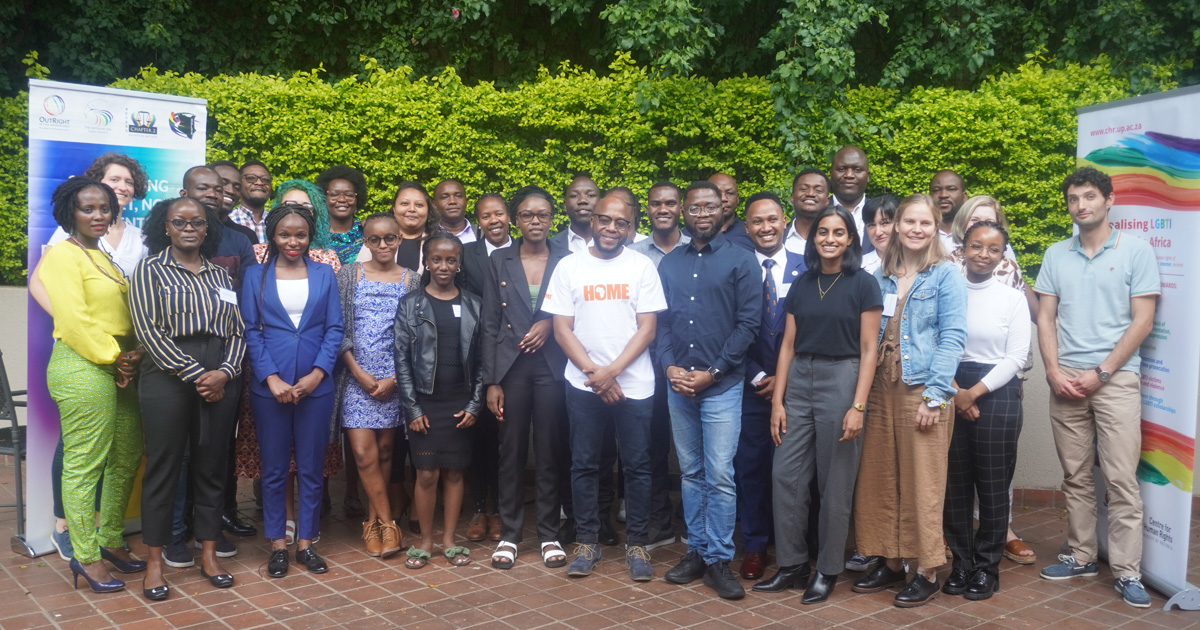On 24 and 25 November 2022, the Centre for Human Rights, Faculty of Law, University of Pretoria, in partnership with OutRight Action International, and with the support of the Embassy of the Kingdom of Norway in South Africa, held a Conference on the Decriminalisation of Same-Sex Law and the Eradication Conversion Practices in African countries.
The event was organised by the Centre’s Sexual Orientation, Gender Identity and Expression, and Sex Characteristics (SOGIESC) unit and brought together over 40 activists and scholars from 15 countries.
The Conference was conceived to foster discussion and provide an opportunity for the exchange of ideas on the core themes of decriminalising same-sex laws and eradicating conversion practices in Africa. Additionally, the Conference served as an opportunity to harmonise context, share experiences, strategise and build a body of comprehensive academic literature on these topics.
Professor Frans Viljoen, Director of the Centre for Human Rights, welcomed participants with an overview of the African human rights system’s approach to LGBTIQ+ rights, including recent victories and setbacks at the African Commission for Human and Peoples’ Rights.
Justice Edwin Cameron, former Justice of the Constitutional Court of South Africa and Inspecting Judge of Judicial Inspectorate for Correctional Services, gave the keynote address. Justice Cameron reflected on his own experiences as an openly gay man during apartheid, the struggle to ensure equal protection for the LGBTIQ+ community under South Africa’s democratic constitution, and the rising tide of queer visibility across the continent.
The first day of presentations and panel discussions focused on contextualising queerness and criminalisation, litigation strategies, and human rights approaches to decriminalisation. Participants discussed the importance of decriminalisation as well as challenges to, and opportunities for, decriminalisation. The presentations included discussions analysing incremental and strategic litigation, as well as legislative reform and judicial decriminalisation, and how best to realise decriminalisation in the context of the regional human rights framework.
The second day of the Conference comprised of presentations contextualising conversion practices in Africa, discussing human rights approaches to eradicating conversion practices, and proposing and evaluating strategies for rights’ advancement beyond litigation. Participants attempted to fill gaps in existing knowledge by presenting evidence on the scale and nature of conversion practices as they exist across the continent. Panellists explored the value of a right to health approach in combatting harmful conversion practices. More broadly, participants discussed the potential roles of alternative strategies for LGBTIQ+ rights’ advancement, including media, education, survivor support programmes, protest, and visibility. Across the two days, the Conference presentations covered both thematic and country-specific focus, providing a diverse range of perspectives, experiences, and research.
The Centre is grateful for the wealth of knowledge, experience and engagement all participants brought to the Conference. The Centre looks forward to publishing all the Conference papers in an open-access book that will be freely available through the Pretoria University Law Press (PULP).
For more information on the Conference, please contact:

Tel: +27 (0) 12 420 3151
Fax: +27 (0) 86 580 5743
ayodele.sogunro@up.ac.za

















